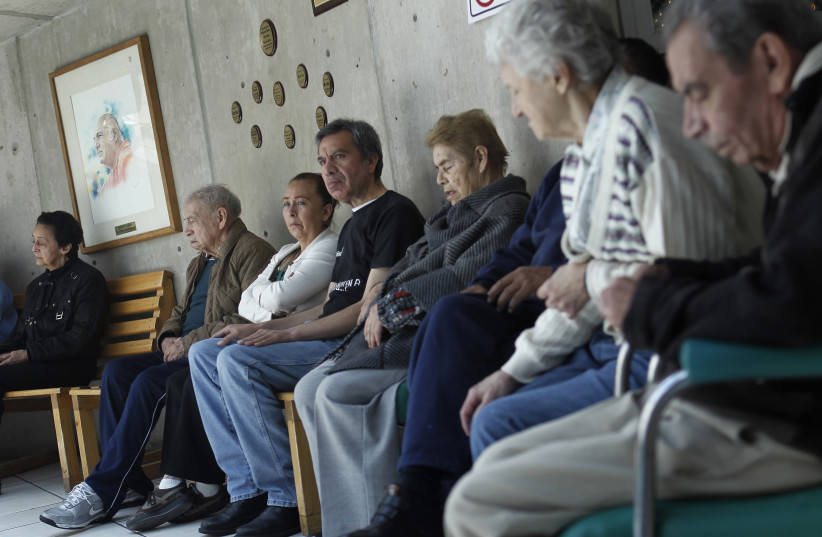Holocaust survivors may have greater mental resilience than their peers and therefore are at a reduced risk of developing post-operative delirium, an Israeli study published on Thursday found.
The peer-reviewed research, conducted by grandson of Holocaust survivors Dr. Yotam Weiss of Tel Aviv Medical Center, found that survivors were 40% less likely to develop delirium than people of the same age group that did not experience the horrors of the Holocaust.
Post-operative delirium refers to a decline in cognitive abilities and awareness of the elderly following surgery of any kind. Delirium, which also affects fluctuating changes in attention and memory, is the most common complication for older people going through an operation and can have many different causes.
While delirium is a temporary state, it can significantly affect the recovery of an older patient.

The study's results
According to Dr. Weiss, Holocaust survivors possess a higher risk of developing psychological conditions such as post-traumatic stress disorder (PTSD) and depression, with some studies finding a correlation with early-onset dementia.
In addition, Holocaust survivors are more prone to medical conditions and are in generally poorer health than their peers.
This is why, Weiss said, he was caught by surprise when research showed they have a significantly lower risk of developing post-operative delirium.
The study sought to analyze 2,222 elective surgical patients who were treated at Tel Aviv Medical Center between January 2020 and July 2021, with 25% of patients analyzed being Holocaust survivors. Over half of the patients (1,211) were born before1945 and therefore may have experienced the Holocaust.
The researchers evaluated the cognitive status of all study participants throughout the first days following their operation.
While no significant differences between survivors and non-survivors were found in rates of cognitive impairment or in post-operative delirium, the 40% difference was found when adjusted to factor in known risk factors for post-operative delirium, such as age, cognitive impairment and the type of surgery conducted on the patient.
Our duty to Holocaust survivors
"We have a duty to the survivors...we know that their number is declining every year and it is our duty as a medical staff to assist them during hospitalization"
Dr. Yotam Weiss, Tel Aviv Medical Center
"Information like this can help us adjust their care accordingly," Dr. Weiss added.
The research concluded that one in 4 surgical patients in Israel, who were born before 1945, are Holocaust survivors. In addition, one in five patients have undiagnosed cognitive impairment and one in six are at risk for post-operative delirium.
"In an aging world with a rising life expectancy, these numbers have enormous significance," Weiss noted.
The Israeli researcher added that previous physiological studies show that Holocaust survivors are characterized by their survivorship and resilience, traits which survivors who have reached old age regularly exhibit. However, he did note that survivors having "greater mental resilience" is only a hypothesis for now and that more specific testing could shed further light on the subject.
The research will be presented at Euroanaesthesia, an annual meeting of the European Society of Anaesthesiology and Intensive Care (ESAIC), set to take place in Milan, Italy on June 4-6.
